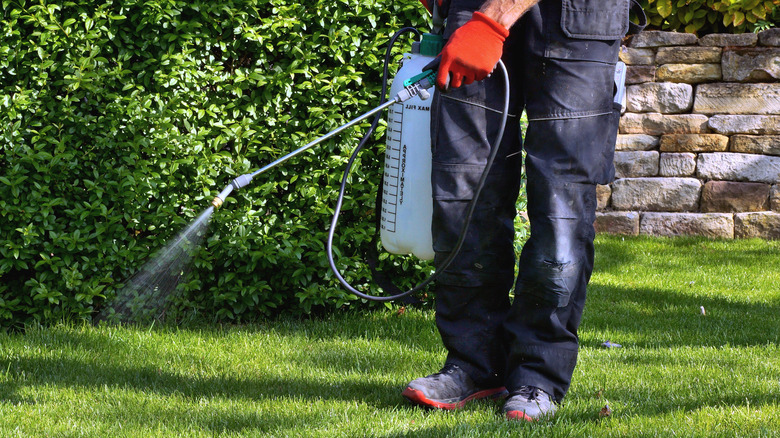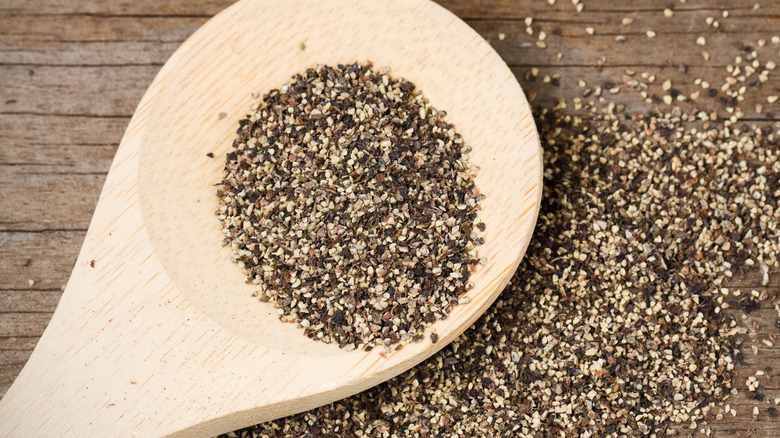Here's How Black Pepper Works As A Pesticide When Put In Garden Soil
If you're on the hunt for a more natural way to protect your home garden from pests, the answer might be found in your spice cabinet. According to a study published in Parasites & Vectors, black pepper works as a natural larvicide against even insecticide-resistant bugs. It's also useful in repelling mammalian pests that could get to your plants, like groundhogs, dogs, cats, and squirrels (via United States Environmental Protection Agency). In addition, it even has antibacterial properties that can help reduce the spread of disease from plant to plant, all without the negative impacts of chemical pesticides.
All of these benefits are possible because of one unique compound found in this household spice. Black pepper contains piperine, an alkaloid that kills insects. Piperine acts as an antibacterial agent and gives pepper its distinctive flavor. Nosy animals are repelled by black pepper's strong smell and harsh flavor. That means they're more likely to pass on taking a few nibbles from your home-grown vegetables in favor of something with a bit less bite.
Why you should consider using natural pesticides
Typical spray pesticides are usually cheaper and more convenient than natural options, but they don't come without consequences. According to a study published in Interdisciplinary Toxicology, chemical pesticides were first developed for use in the 1950s. Since then, they've had a major positive impact on the spread of diseases, increasing yields from farmers' crops and boosting the quality and quantity of food available worldwide. The idea was to utilize a chemical that was toxic to pests and weeds but safe for use around humans and other animals. However, further research has proven that developers may have missed the mark.
Newer data shows that these chemical compounds pose a risk to both humans and the environment. A few sprays in your lawn every now and then likely won't make a difference in your quality of life, but runoff into the water supply can have devastating effects on the surrounding plants and animals. Because of this, it's best to utilize eco-friendly ways to keep bugs out of your garden whenever possible, like sprinkling black pepper — even in small-scale applications.
How to use black pepper in your garden
There are a few different ways that you can utilize black pepper in your garden, depending on the desired effect. Sprinkling black pepper into your soil is a good way to combat and repel insects that live closer to the root, like ants, while mixing powdered black pepper or black pepper oil and warm water in a spray bottle can help target any critters on the leaves. Give your plants a spritz, and the water will eventually evaporate, leaving behind an even, protective coat.
After you're done with your application, you should be good to go on protection for a while. If you experience a large amount of rainfall or notice the scent of black pepper fading, however, it could be a good idea to re-up with another coat on your plants' leaves to be safe. Investing in a large amount of black pepper only to toss it on your garden might seem like a waste of money. But with this method, you'll get all of the benefits of a typical pesticide — without any toxicity or negative environmental impact.

